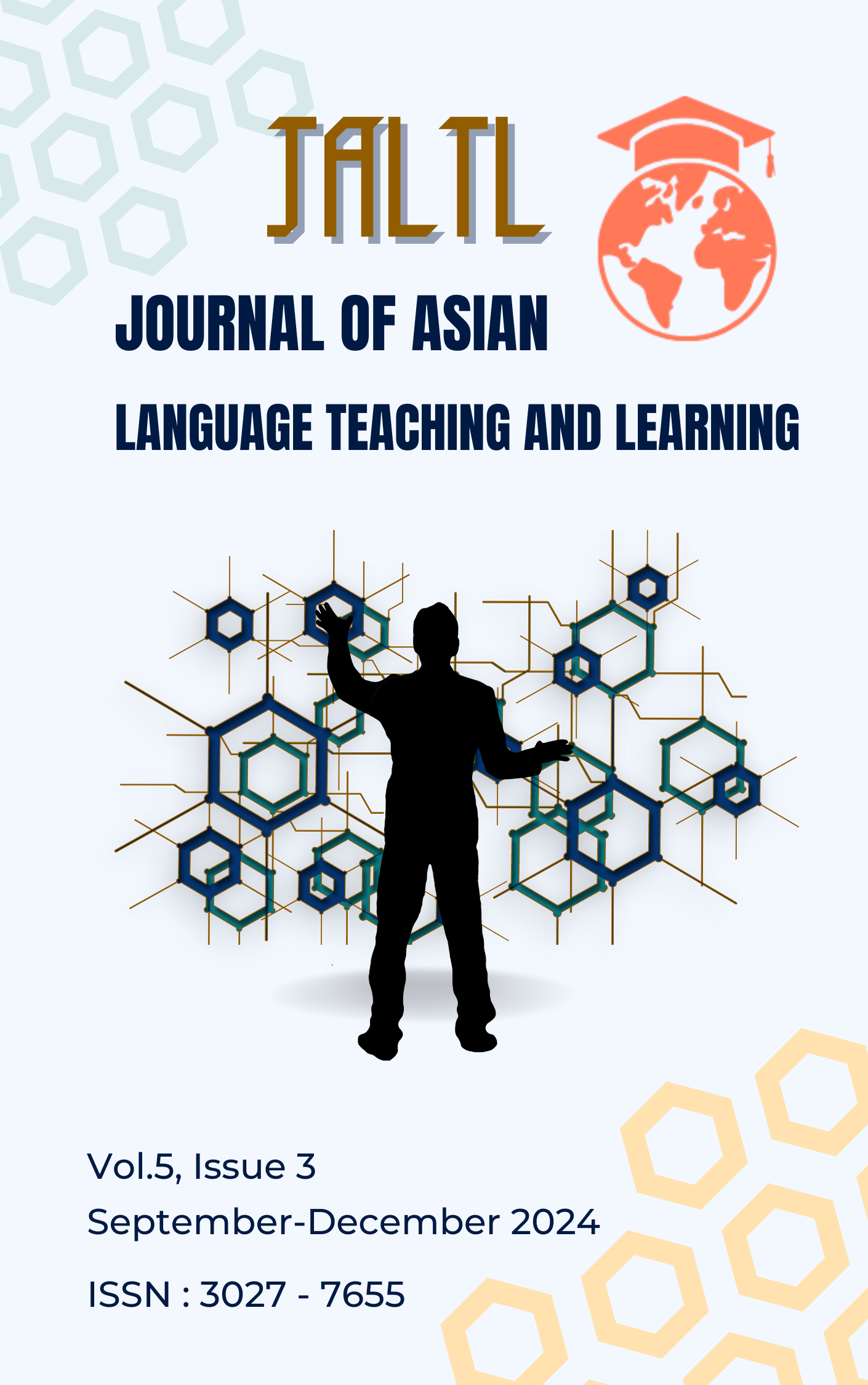The Effectiveness of using Game-Based Learning (GBL) for developing English Speaking Skill in the 4th grade Intensive English program pupils at Anuchonsuksa School, Kanchanaburi province
Main Article Content
Abstract
The objectives of this study were 1) To study game-based learning (GBL) in the English class of fourth grade pupils at Anuchonsuksa school, Kanchanaburi province; 2) To create game-based learning (GBL) in the classroom of 4th grade pupils in Anuchonsuksa School; 3) To experiment with the effectiveness of using game-based learning (GBL) in the fourth grade English classroom at Anuchonsuksa School; and 4) To compare pupils’s English efficiency skills before and after using game-based learning in the classroom of fourth grade pupils in Anuchonsuksa School. The study involves a sample of 40 students enrolled in the Intensive English Program (IEP) at Anuchonsuksa School. The research methodology used is Research and Development (R&D), which aims to ensure the efficacy of the new teaching strategy that is being studied. The innovation of learning English speaking with games is the research model that assisted the researcher in completing this study.
These instruments use the calculation method to find out the E1/E2 value, standard deviation, and T1 and T2 by the Microsoft Office Excel program. The finding revealed that the effectiveness of lessons (E1/E2) is 85.5/85.5, confirming that innovation is effective and acceptable. The average of the pre- and posttest is 12.5 and 25.65; the delta shows that the student points increased by 13.6, particularly in part 3 of the test, which increased the most at 5.6. The result can indicate that their English-speaking skills are improved after learning through game-based methods.
Article Details

This work is licensed under a Creative Commons Attribution-NonCommercial-NoDerivatives 4.0 International License.
References
Bailey, K. M., & Savage, L. (1994). New ways in teaching speaking. Alexandria, VA: Teachers of English to speakers of other languages.
Bongkotchakorn Mattananan, & Tamronglak U-nakarin. (2022). The Development of English Speaking Skills by Using the Cooperative Learning Technique for grade 9 students in Prankrataipittayakom, Kamphaengphet(Thesis of Master of of Education Program in English). Graduate School: Naresuan University.
Chanoknat Chinsorn. (2018). The Satisfaction of Students in Studying Fundamental English Subject at Rajamangala University of Technology Thanyaburi. The 2nd National Academic Conference on Innovations for Learning and Inventions was held on July 18, 2018. Rajamangala University of Technology Thanyaburi: Pathum Thani Province.
Jarunthawatchai, W. (2010). A Process-Genre Approach to Teaching Second Language Writing: Theoretical Perspective and Implementation in a Thai University Setting(Doctoral Dissertation of Philosophy). University of Southampton: Faculty of Laws, Arts & Social Sciences.
Ministry of Education. (2008). The basic education core curriculum, 2008. Bangkok: The Office of Basic Education Commission.
Nongsamorn Pongpanich. (2011). A Study of Problems in English Speaking in Speech Communication of Management Sciences Students, Kasetsart University, Sriracha Campus: October 2007 to September 2008. Humanities Journal, 18(1), 85-97.
Nunan, D. (1996). Designing tasks for the communicative classroom. Cambridge, UK: Cambridge University Press.
______. (2002). Task-based language teaching. Cambridge, UK: Cambridge University Press.
Nurat Yamchai. (2016). The Use of Task-based Learning to Enhance English Oral Presentation Skill for 1st Year Students, Silpakorn University(Thesis of Master of Education, English Language Teaching). Silapakorn University.
Palita Yaorm. (2019). English-speaking problems of undergraduate students in a public University(Thesis of Master of Arts in career English for international communication language institute). Thammasat University.
Pranee Aanthaboot. (2012). Using communicative activities to develop English speaking ability of Matthayomsuksa three students(Master of Arts Degree in Teaching English as a Foreign Language). Srinakharinwirot University.
Richards, J. C. (1990). Language teaching matrix. Cambridge, UK: Cambridge University Press.
Sippanon Lakhonkhwa. (2020). Improving English Reading Abilities of 7th Grade Students by Using Scaffolding Reading Experience Strategies(Thesis of Master of Education, Curriculum and Instruction). Rajabhat Maha Sarakham University.
Suchavalee Wongsrita. (2022). Development of English Speaking Skills and Confidence in Speaking English for Communication Using the Storytelling Technique Based on The Freytag’s Pyramid Structure for Grade 4 Students(A Thesis for the Degree of Master of Education Department of Curriculum and Instruction). College of Education Sciences: Dhurakij Pundit University Academic.
Wanicha Siraranghom. (2020). The Analysis of Needs in English Speaking Skills and Problems of Navaminda Kasatriyadhiraj Royal Air Force Academy Graduates in Speaking English in the Workplace. Dhammathas Academic Journal, 20(4), 40-52.
Willis, D., & Willis, J. (2007). Doing task-based teaching. Oxford, UK: Oxford University Press.


